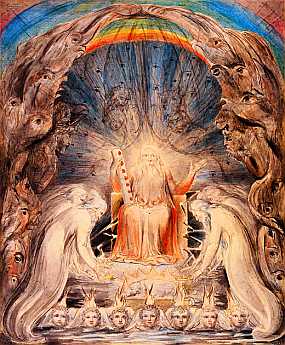Let’s listen in on the end of a Christian men’s group meeting:
Guy 2, raising a hand: I inherited a couple thousand dollars from an aunt who died, and I need prayer to know how to best handle the money.
Guy 3: Put it in a stock index fund. Tracks the stock market and since it’s always going up over time, you win.
Guy 4: Have you looked into a 529 account? Little Joey will be going to college some day. Gotta remember that.
Guy 5: There’s the upcoming mission trip for the youth. I hear a lot of the kids don’t have enough money to go. You could write it off. Advance the Kingdom and all that.
Guy 3 to Guy 5: But if he invests it, he could make money and still turn some over in the future. Let his interest fund the mission trip five years from now.
Guy 6: This is a blessing from God. He means it to meet your needs. Your car’s not lookin’ all that hot right now. Didn’t you say the transmission needed work?
Guy 2 to Guy 6: True, but…
{Twenty minutes later…}
Guy 4: College, man. I’m telling you. It’ll cost a quarter million for four years the way things are going. Save now.
Guy 1: It’s almost 9:30, guys. Looks like we’ve pretty much shot our time, so anyone want to close in prayer?
{Guy 2 raises his hand}
Guy 1: Go for it.
Guy 2: Thank you, Lord, for this time. We pray you’d bless us and all our families. Help us to know you more. Amen.
All the Guys: Amen.
Sound familiar? I’d say that’s an eerily close script for just about every group of Christian men I’ve ever been a part of. Mention praying for each other’s needs and for the needs of the Body and you’ll hear 99 percent advice and 1 percent prayer.
I don’t remember it being that bad in my ancient past, though. And as much as it’s easy to blame men for this (to say they just aren’t spiritual enough today), I have another theory.
Consider all the changes wrought in our society in the last fifty years.
- Companies fire men at the drop of a hat, even if they do good work.
- Women now fight them for their jobs—and win.
- The feminist movement questioned men’s very raison d’être, and that questioning trickled down into society as a whole.
- TV went from Father Knows Best to showing dad routinely outsmarted by everyone, including the family dog.
- Men aren’t reading the lay of the society’s land well. Too many changes happening too fast. Even in church on Sunday, they hear the message they’re not doing it right.
In short, I believe many men—many Christian men—struggle with feelings of incompetence. They wonder if they do anything well.  They fear that the future will somehow reveal their inadequacies, and they’ll be made a laughingstock.
They fear that the future will somehow reveal their inadequacies, and they’ll be made a laughingstock.
I’m no psychiatrist. I’m down on psychology. But when I talk to other men, I see them struggling with these issues. It’s like watching Death of a Salesman or Glengarry Glen Ross looping in the lives of many men.
I believe this comes out in the way men approach prayer today.
A problem arises as expressed through a prayer concern. Suddenly, a chance to show competence—to let someone else know that I’ve heard what he said and I might be able to resolve it then and there, as if God had miraculously touched my mind with the answer! I can be helpful! I can make a difference!
I can be competent!
A more disturbing side exists to this, too. Intellectual competence in providing the winning solution to someone’s problem isn’t the only competence issue at stake here. Prayer becomes a comptetence issue, as well.
To many men, providing a common sense answer to a prayer need means not running the risk that prayer may not work. We prayed about Steve’s inheritance and he wound up getting taken by some shyster financial advisor. Then who’s wrong? Maybe our prayers failed the competency test. Maybe our faith failed that test, too. Maybe we’re not godly enough for God to take our prayers seriously. We’ve botched everything else, so why not this, too?
That fear of being shown incompetent doesn’t afflict women as much as men. I think the main competence issue women struggle with concerns raising their kids. Yes, that’s a leaden weight, too, but I think men tend to struggle with competence in every aspect of their lives. It’s why shows of bravado empower men. To be king of the hill carries some meaning.
Now we can inject all sorts of spiritual advice into this. We can talk about dying to self. We can talk about grace. But men simply aren’t experiencing those in their lives because what they get from the church on Sunday doesn’t have enough steam to get them past the gauntlet of potential incompetence they must run through the rest of the week. The car breaks down, and it’s so complex they can’t fix it. When their kids ask for help on algebra, they can’t do it. They can’t work enough hours in the week to avoid the offshoring due to hit their company. They can’t meet all the requirements the parachurch ministry says they must meet to be a Christian husband. They don’t even know where to start in prayer to address all these lacks. So they don’t even try.
And that’s my take on why men today don’t pray.

 Unlike Peter above, they’ve opened their minds to too many foreign sources of supposed truth, only to stumble into error.
Unlike Peter above, they’ve opened their minds to too many foreign sources of supposed truth, only to stumble into error.
 I think that if you took those folks and put them into every biblical scene featuring the miraculous, they’d be quaking with fear with their hands over their eyes. They’d be the ones frozen stiff before the parted Red Sea screaming, “No! You can’t make me go through there!”
I think that if you took those folks and put them into every biblical scene featuring the miraculous, they’d be quaking with fear with their hands over their eyes. They’d be the ones frozen stiff before the parted Red Sea screaming, “No! You can’t make me go through there!”